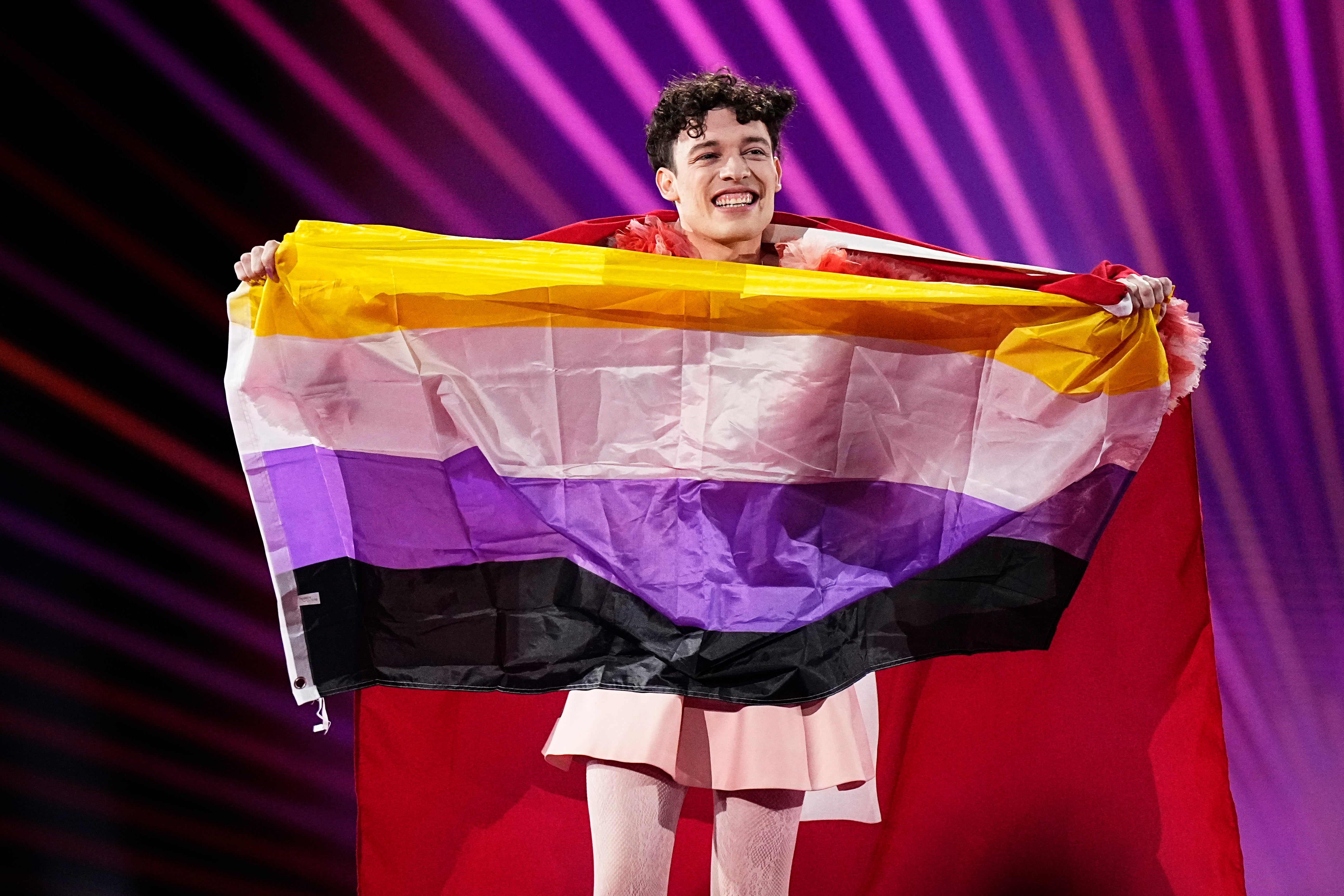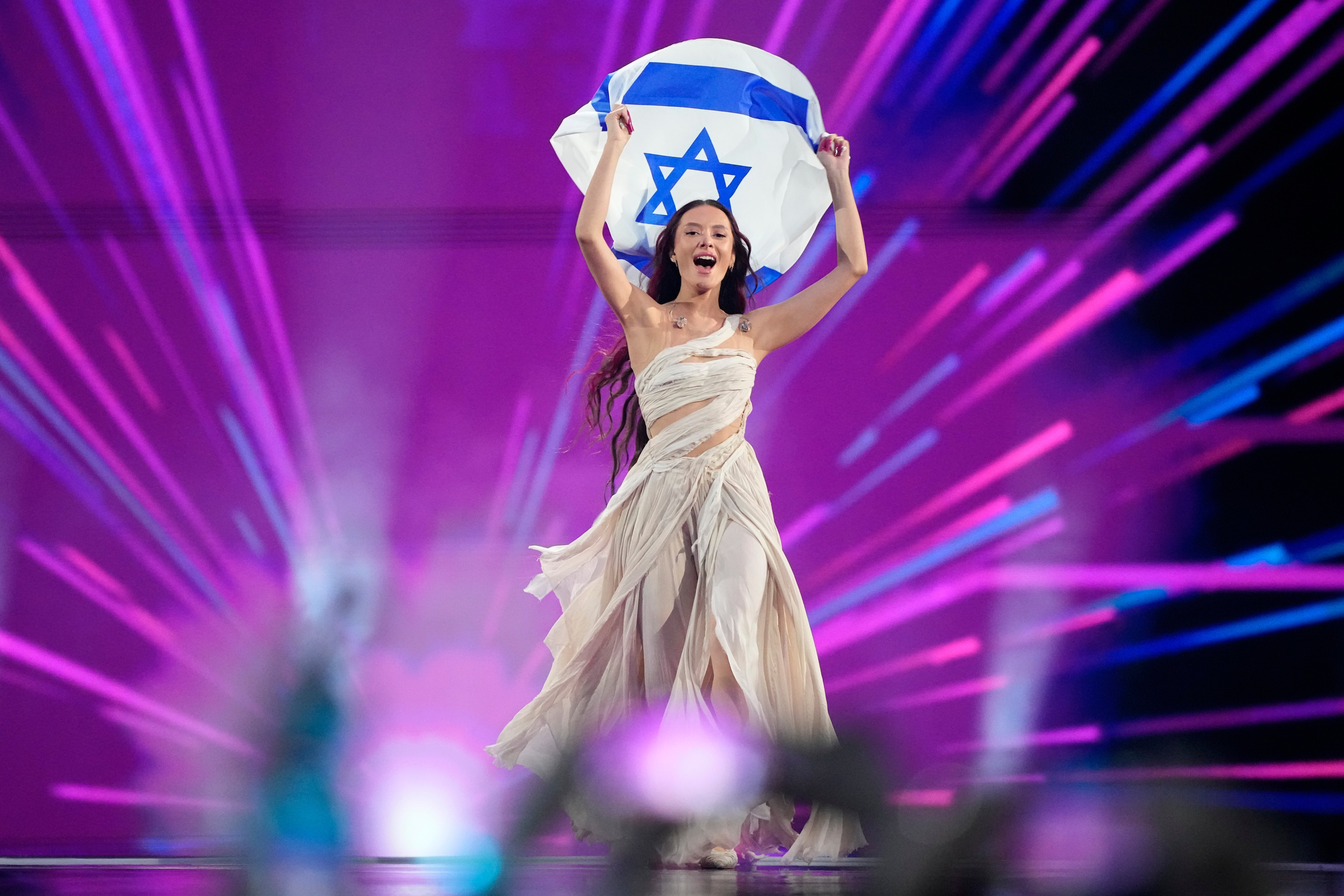Eurovision banned the EU flag. Now the EU is demanding to know why
The EU have called the decision to ban the flag ‘a mistake’

Your support helps us to tell the story
From reproductive rights to climate change to Big Tech, The Independent is on the ground when the story is developing. Whether it's investigating the financials of Elon Musk's pro-Trump PAC or producing our latest documentary, 'The A Word', which shines a light on the American women fighting for reproductive rights, we know how important it is to parse out the facts from the messaging.
At such a critical moment in US history, we need reporters on the ground. Your donation allows us to keep sending journalists to speak to both sides of the story.
The Independent is trusted by Americans across the entire political spectrum. And unlike many other quality news outlets, we choose not to lock Americans out of our reporting and analysis with paywalls. We believe quality journalism should be available to everyone, paid for by those who can afford it.
Your support makes all the difference.The European Union's executive has hit out at Eurovision, demanding to know why its flag was banned from the concert hall during Saturday’s final.
In a contest already full of controversy, the European Commission said it plans “a very lively discussion” with the organisers over the ban.
Even though the 27-nation EU did not compete as such, many of its member states did, and the star-spangled blue flag is often seen as a unifier for all involved.
EU Commission spokesperson Eric Mamer said it had “no information from the organisers at this point in time about the motivation for refusing the European flag during the event,” but the ban clearly angered EU Vice President Margaritis Schinas enough to hold talks with the Swiss-based European Broadcast Union, which organises the contest.
“We certainly encourage the EBU to understand this is a mistake,” Mamer said.
Commission Vice President Margaritis Schinas said the decision to ban EU flags was a gift to “the enemies of Europe.” In a quote to Politco he added: “It’s mind-blowing, what the EBU did.”
Veteran Belgian MEP Guy Verhofstadt referenced the ban in a post on social media about protests in Georgia happening at the same time.
During the weeklong contest, those behind the scenes were already roiled by the protests linked to the war in Gaza and the controversial disqualification of the Dutch participant over an incident which was never fully explained.
The news was announced hours before the annual event’s grand final, which took place in Sweden on Saturday (11 May).
Organising body, the European Broadcasting Union (EBU), released a statement that read: “The Dutch artist Joost Klein will not be competing in the Grand Final of this year’s Eurovision Song Contest.”
However, Netherlands said the decision was “disproportionate” in a statement that shed light on what went down behind-the-scenes.
Klein’s disqualification follows a Swedish police investigation into a complaint of inappropriate behaviour made by a female member of the production crew, which occurred after Thursday’s semi-final.

Ahead of the final, a spokesperson for the European Broadcasting Union that runs the show said ticket holders are only allowed to bring and display flags representing participating countries, as well as the rainbow-colored flag which is a symbol for LGBTQ+ communities.
In a statement issued on Monday, the EBU added: “As in previous years such as 2023, [Swedish public broadcaster] SVT’s policy was to allow the flags of the participating countries and the rainbow flags. There has never been an express ban on the EU flag in the written policy.
“Due to heightened geopolitical tensions, the flag policy was more rigorously enforced by security at this year’s event. We will look again at the flag policy for 2025 in conjunction with our new host broadcaster.”
Switzerland were crowned the champion on the night.
Nemo, the 24-year-old pop singer, who goes by they/them pronouns, won over both the jury and the public voters, after what looked like an initially close match with fellow favourites Croatia, France and Italy.
Their song “The Code”, which incorporated elements of opera, pop, rap and dance, was written by Benjamin Alasu, Lasse Midtsian Nymann, Linda Dale and Nemo.
Accepting the trophy from 2023 winner Loreen, Nemo thanked voters and said they “hoped this competition can continue to live up to its promise to stand for dignity and peace everywhere”.